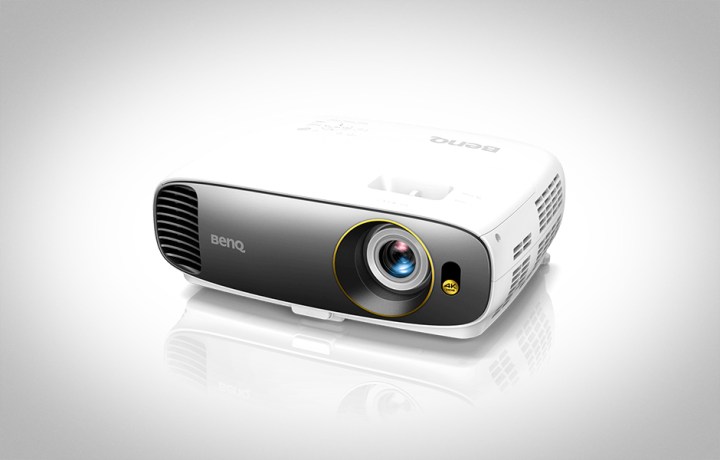
Dubbed the CineHome HT2550, its small DLP (digital light processing) chip natively displays 8.3 million pixels with 2,200 lumens of brightness. Other projectors around this price usually feature about half that number, but use tricks to double the displayed pixels. Unsurprisingly, native UHD 4K resolution is sharper and smoother than what you get with an upscaled picture.
In addition to native UHD 4K resolution, the HT2550 also supports the other major modern picture enhancement, High Dynamic Range (HDR), and the HDR10 open standard specifically, which means everything from streaming 4K content to game consoles will be supported. Other HDR formats, such as Dolby Vision, are not supported.
Still, users will get the full advantage of HDR’s increased contrast ratio thanks to the HT2550’s wide color gamut, which covers 96 percent of the Rec 709 color space and meets the highest film industry color standards.
Not only that, but BenQ claims the HT2550 is designed for exceptional color accuracy, optimizing HDR and SDR content in real time for the best possible picture. We’ve had some hands-on time with the projector and can vouch for its color performance appearing subjectively solid. And, while black levels aren’t exceptional, the HT2550 does offer great contrast and impressive
So the HT2550 can produce high-end UHD picture at a relatively inexpensive asking price, but what about its size? Thanks to the slight 0.47-inch size of the DLP chip, the HT2550 is a modestly sized projector, which should make it easier to find a spot in your home theater. It features a white glossy body with a rounded, minimalist design so it can fit in with most decor. To help with installation, features such as auto-keystone correction and 1.2-times zoom are present to achieve proper alignment and picture focus.
The HT2550 also includes several ports for connecting your devices, including two HDMI ports — one of which is HDCP 2.2 compliant — 15-pin computer-in and 9-pin RS232 ports, USB type A and USB mini ports, audio-in and out jacks, and a 12-volt trigger. You can plug in anything from streaming boxes or dongles, to gaming consoles, cable boxes, PCs, and more.
While we’re usually not enthralled with built-in speakers on projectors, we’ve found those in the HT2550 to be remarkably loud, meaning the projector could work well for a pop-up movie night, even if the unit isn’t necessarily designed to be portable.
The BenQ HT2550 retails for $1,500 and is available for pre-order right now via Amazon and BenQ Direct. The projector will be available via other retailers like Best Buy beginning January 15.
Editors' Recommendations
- TCL’s giant 115-inch QM89 is the world’s largest 4K mini-LED TV
- YouTube TV finally gets the 4K Plus plan’s price right
- Samsung shows off the first two 77-inch QD-OLED 4K TVs at CES 2023
- Optoma’s CinemaX 4K laser projectors now have faster response times for gamers
- LG’s latest 4K UST projector only needs 2.2 inches of wall clearance


